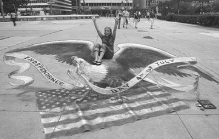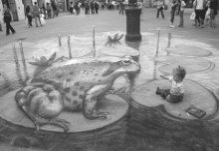题目内容
Are you learning a foreign 1anguage? Do you find it challenging to learn a foreign language? However,there are a few tips you can use in order to earn a top grade--as well as actually use the skills you've learned.
One of the most important and basic lessons in dealing with a foreign language is to learn and understand each concept and lesson before moving on to the next one.If you don’t understand one concept but move on to the next chapter anyway,you're less likely to understand the new material.
Learning a new language is not only an academic tool,but can help you in your everyday life as well.Being good at another language can help you communicate with other people,aid you when traveling to foreign countries,and even make your resume look better.
And it is important to learn correct pronunciation as soon as possible for poor pronunciation can be hard to break.Native speakers of the language as well as others fluent in the language you are 1earning will appreciate your efforts to learn correct pronunciation.
Gather outside materials such as books,study guides,books on tape,and travel books to aid you in learning the language.Your textbooks can't possibly teach you everything you need to know,so seeking out—side sources is generally a good rule of thumb to keep in mind.
A significant motivator in learning a foreign language is traveling to the country where the language is spoken.That way,you can see firsthand how the language is used,learn the culture,and meet native speakers of the language.Native speakers appreciate sincere attempts of others who take the time to learn their language.
Seek out native speakers of your new language in your school or neighborhood.They can help you with many skills,including pronunciation,and they can provide immediate feedback on your progress.
1.This passage is written to __________.
A.explain why learning a foreign language is challenging
B.tell us the importance of learning foreign 1anguages
C.tell us some ways of earning a top grade
D.give us some tips on learning foreign languages
2.What's the best subtitle of Paragraph 3?
A.Think beyond academic tool.
B.Learn each concept.
C.Plan a trip to use your skills.
D.Consider a language as an academic tool.
3.We can learn from the passage that __________.
A.textbooks are not good for us when 1earning a foreign language
B.1earning pronunciation well from the very beginning is very important
C.poor pronunciation can be easy to break with the help of native speakers
D.seeking too many outside sources will be more harmful than beneficial
1.D
2.A
3.B
【解析】
试题分析:很多人都觉得外语很难学,那么如何学好一门外语呢?在本文中作者提出了几点建议。最重要的是扎扎实实走好每一步,不要有知识的遗漏。再次要把外语的学习应用到日常生活中,学会用外语交流。此外,语音的掌握也非常关键。
1.主旨大意题。根据首段there are a few tips you can use in order to earn a top grade--as well as actually use the skills you've learned可知本文目的是为了介绍几点学英语的建议,选D。.
2. 主旨大意题。本段首句Learning a new language is not only an academic tool,but can help you in your everyday life as well提出学习一门新语言不仅可以成为一种学习的工具,而且也能在日常生活中起到帮助作用,然后又进行具体介绍,故选A。
3.细节理解题。从文章第四段 And it is important to learn correct pronunciation as soon as possible for poor pronunciation can be hard to break可知掌握发音非常关键,选B。
考点:考查社会教育类短文阅读



